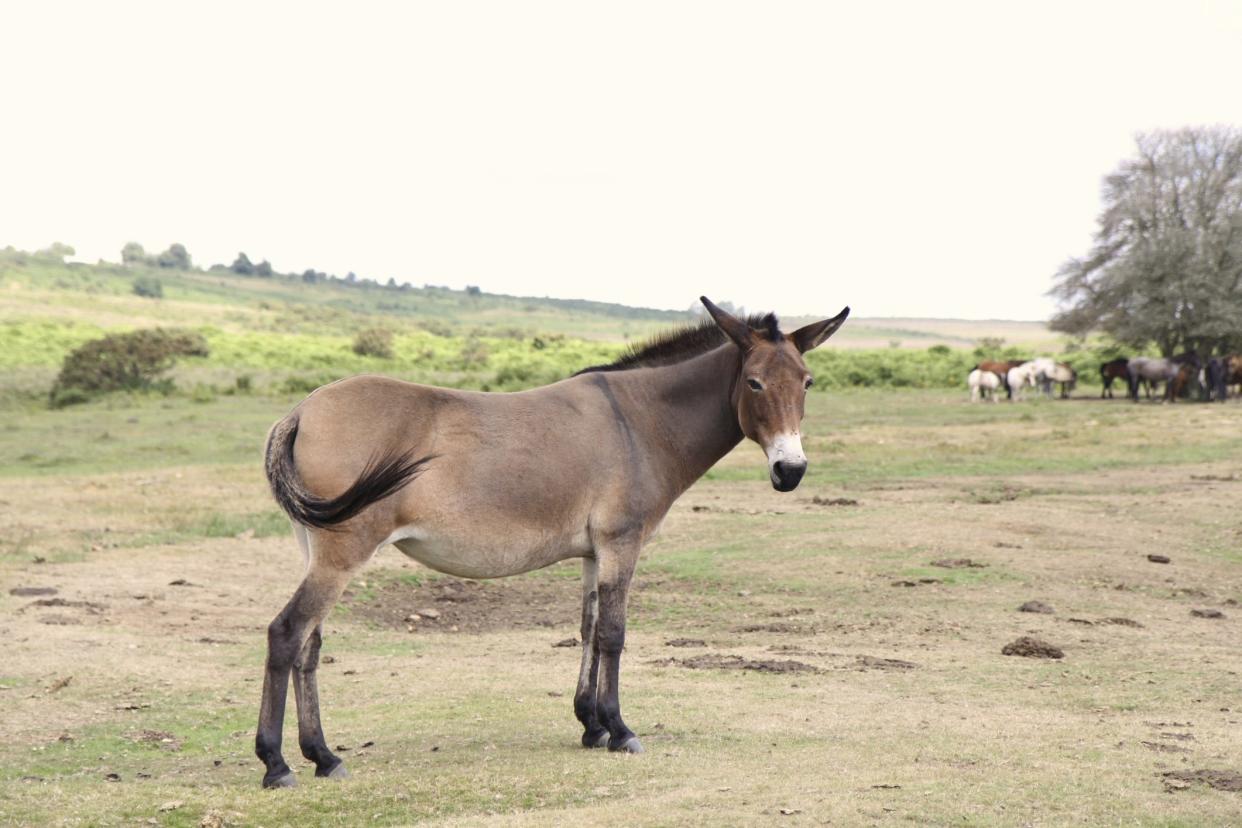The story of Stockings — a special mule

Several years ago, I read an essay about the lives of the poor in Morocco during the mid-20th century. The author referred to the donkeys many of the families used as beasts of burden. The Moroccans placed bundles of sticks on the backs of the donkeys, which were then transported to the hovels in the villages.
When the donkeys died, their carcasses were often left in ditches along the roadside. The author thought the practice sad, since the animals had worked faithfully until their deaths. Not all of those who depended on beasts felt the same about their draft horses and mules.
My father, a Texas farmer, formed a bond with a mule he worked as part of a team for almost 20 years. According to Sophia Sarember, an expert on draft animals, mules see themselves as partners with their handlers, and the handlers generally respond in kind.
My father’s mule was called Stockings because the lower parts of all four of her legs were white, contrasting with her brown body. I was only 3 years old when a mare on our farm delivered Stockings. All during my childhood and adolescence, Stockings — with her teammate, a spotted mare — pulled the several kinds of plows he used to prepare, plant and cultivate the fields where he grew cotton, corn, and field peas. My father also used the team to pull the farm wagon. The other farmers I knew used a pair of mules for the farm work, but for whatever reason my father teamed a horse with Stockings.
Stockings’ personality was noteworthy. Her behavior responded to my father’s every command. If his tone was harsh, she lowered her head. She was compliant, but my father knew not to try to drive her across the wooden bridge near our house when there was a hole in one of the planks. Her instincts kept her from taking the risk. According to Sarember, mules inherit this caution from the donkey. Generally, the spotted mare did not appear to be as cautious.
During the summers when Stockings came to the fence bordering our yard, my brother and I knew that she wanted us to feed her fresh peas in the hull. During the summer months, we had an ample supply. My younger brother and I enjoyed standing on one side of the yard gate across from Stockings, handing her a hull filled with green peas one at a time while rubbing the top of her head.
Though by the time World War II ended, hardly any farmers in the area used horses or mules for farm work, my father continued to work Stockings and the mare. He grew bumper cotton crops in 1949 and in 1950 on new ground using Stockings and the mare to help him plant the seeds and plow the cotton plants. He bought a tractor, but it sat unused in the barn until he sold it a year or two later. Over the years he had become attached to his team.
I was in college when Stockings died at 17 years of age. After the truck came to take the carcass away, Daddy wrote immediately to tell me of Stockings’ death. He described briefly his and Stockings’ history of work. Later, he told me it was very difficult for him to witness her unsuccessful attempts to stand during the last day or two of her life. Apparently, the composing of that message was therapeutic.
Technological advancement has taken away the opportunity for the kind of attachment that once existed between man and beast.
Robert Cowser is a native of Texas currently living in Ashland. He is a retired professor, having taught in schools in Texas, Oklahoma, Kentucky and Connecticut. His poetry has been published in numerous journals and chapbooks. This column was written in response to Alan Guebert's Jan. 17 piece, "Farm and Food File: In the heat of the night."
This article originally appeared on Columbia Daily Tribune: The story of Stockings — a special mule

